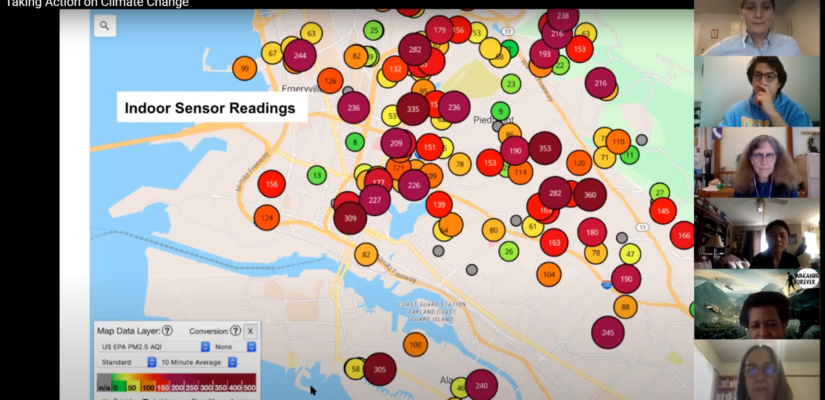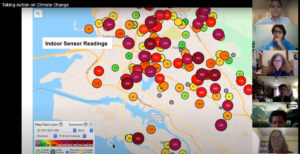
Training & Support for Teachers
Building Students’ Climate & Environmental Literacy Can’t Wait!
 At our core, CRS is about connections. We bring together teachers, scientists, and a wide range of what we call partner organizations — science centers, museums, outdoor education programs, and many others. Even though in-person workshops and field trips are on hold, the learning doesn’t need to stop! Over the summer and throughout the Fall, we’ve worked with a broad range of partners and teachers from the Bay Area and across the state to present an online series of workshops designed to help teachers effectively build students’ environmental and climate literacy.
At our core, CRS is about connections. We bring together teachers, scientists, and a wide range of what we call partner organizations — science centers, museums, outdoor education programs, and many others. Even though in-person workshops and field trips are on hold, the learning doesn’t need to stop! Over the summer and throughout the Fall, we’ve worked with a broad range of partners and teachers from the Bay Area and across the state to present an online series of workshops designed to help teachers effectively build students’ environmental and climate literacy.
“Now more than ever it is important teachers feel the need to provide lessons that explore the changing natural world and human impacts on our planet, and to empower students to take actions in their communities to bring about changes.” explains CRS teacher service manager Corinn Brown.
During the summer, in partnership with the Lawrence Hall of Science, workshops included exploring solar, wind, and natural gas energy, and ways to include data from local sources into lessons. In September, we hosted an online Resource Fair highlighting the new and covid-era revised offerings from nearly two-dozen science and environmental education programs. While many are not able to open their doors for visitors and field trips, there are amazing new virtual field trips, lesson resources, and other programs available to enrich elementary science learning even at a distance — all featured in our online Resource Guide.
Can climate be racist? That was the thought-provoking title of keynote speaker Dr. Leena Bakshi from STEM4Real, who shared with teachers real-world, local examples of climate impact case studies to enrich their teaching. Dr. Kate Carter from the National Center for Science Education shared resources for citizen science and strategies for connecting lessons with actual science research in the community. As with everything in these virtual times, the Resource Fair and keynote speakers are available for “asynchronous” access anytime.
Workshops will continue through November, exploring topics from food waste to river otters, from air quality data to watersheds and much more, with offerings for educators for TK to 12. These can be taken for academic continuing education credit, too. Find out about upcoming workshops, watch the recorded sessions and get resources on environmental education at www.crscience.org/educators/climateliteracyseries/
